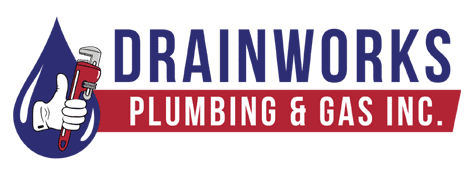Clean Water, Healthy Living: Demystifying Water Filtration Systems
Water is an essential resource that impacts our daily lives, from nourishing our bodies to keeping our homes clean. However, not all water sources are suitable for immediate consumption. That’s where water filtration systems come into play, ensuring the water we use and drink is pure, clean, and safe.
Welcome to Drainworks Plumbing & Gas’ comprehensive guide to understanding the different types of water filtration systems available in Brandon, FL. Read on to learn about the benefits, functionalities, and installation options of these systems, empowering you to make an informed choice for your home.
The Importance of Water Filtration
Water filtration systems play a crucial role in purifying water by removing contaminants, such as bacteria, sediment, chlorine, and heavy metals. The benefits of investing in a reliable water filtration system go beyond just improving taste and odor:
Firstly, a high-quality filtration system enhances the overall quality of the water you consume, ensuring it is safe to drink. Your family’s health is invaluable, and having clean water at your fingertips can significantly reduce the risk of waterborne illnesses.
Secondly, water filtration systems protect your plumbing and appliances from potential damage. The presence of impurities in water can lead to the buildup of scale and sediment, causing corrosion and reduced efficiency. By removing these contaminants, a filtration system prolongs the lifespan of your plumbing and appliances, saving you money in the long run.
Understanding Different Types of Water Filtration Systems
a. Carbon Filters
Carbon filters are among the most common and popular types of water filtration systems. They use activated carbon to absorb impurities, chemicals, and odors, enhancing the taste and quality of water. These systems are simple to install and cost-effective, making them an excellent choice for households in Brandon, FL. Whether you need cleaner water for drinking or cooking, a carbon filter can efficiently remove chlorine, volatile organic compounds (VOCs), and certain contaminants, providing you with refreshing and safer water.
b. Reverse Osmosis Systems
Reverse osmosis (RO) systems are highly effective in removing a wide range of contaminants, such as lead, fluoride, arsenic, and dissolved minerals. Using a semi-permeable membrane, RO systems force water through tiny pores, ensuring only pure water molecules pass through while impurities are left behind. These systems are capable of providing water that meets or exceeds the standards set by regulatory bodies. Choosing an RO system guarantees peace of mind, as it eliminates potentially harmful substances that may be present in your water supply.
c. UV Water Purification
UV water purification systems are designed to eliminate harmful microorganisms, such as bacteria, viruses, and parasites. Using ultraviolet light, these systems disrupt the DNA of microorganisms, rendering them unable to reproduce or cause harm. UV purification is a chemical-free and eco-friendly option, ensuring your water is free from harmful entities without altering its taste or odor. This system can be a valuable addition to your overall water filtration setup, ensuring that every drop of water you consume is microbiologically safe.
Considerations for Choosing the Right Water Filtration System
a. Water Source and Quality
Before choosing a water filtration system, it is important to understand the quality of your water source. Conducting a water quality test will help identify the specific contaminants that need to be addressed. For example, if your water has high levels of sediment and chlorine, a carbon filter might be sufficient. However, if your source has added fluoride or heavy metals, you may require a more advanced filtration system like reverse osmosis.
b. Water Usage and Household Size
Consider your household’s water usage when selecting a filtration system. If you have a large family, the demand for clean water will be higher, requiring a system with a higher flow rate and larger capacity. Additionally, determine whether you need filtration for point-of-use (e.g., kitchen faucet) or whole-house purposes. Discussing your needs and preferences with a professional plumbing contractor can help you choose the right system tailored to your household.
c. Maintenance and Filter Replacement
Each water filtration system requires specific maintenance to ensure optimal performance. Some systems may require regular filter changes, while others may need periodic cleaning. The cost and frequency of maintenance should be taken into account when selecting a system. Our team of expert plumbers at Drainworks Plumbing & Gas can guide you on the recommended maintenance schedule and provide hassle-free filter replacements.
Professional Installation for Peace of Mind
After evaluating your water quality and choosing the most suitable water filtration system, it is crucial to ensure professional installation. While some filtration systems come with DIY installation instructions, having a licensed plumbing contractor carry out the installation guarantees proper positioning, leak prevention, and optimal performance of your system. At Drainworks Plumbing & Gas, we have a team of experienced professionals who will efficiently install your water filtration system, ensuring it functions flawlessly from day one.
Conclusion
Investing in a water filtration system is a wise decision that promotes a healthier lifestyle for you and your family. By eliminating harmful contaminants, you can enjoy clean, safe, and refreshing water for drinking, cooking, and various household chores. Understanding the different types of water filtration systems empowers you to make an informed choice that meets your specific needs.
At Drainworks Plumbing & Gas, we offer a wide range of high-quality, efficient water filtration systems and unparalleled installation services to ensure you have access to safe and pure water throughout your Brandon, FL home.



